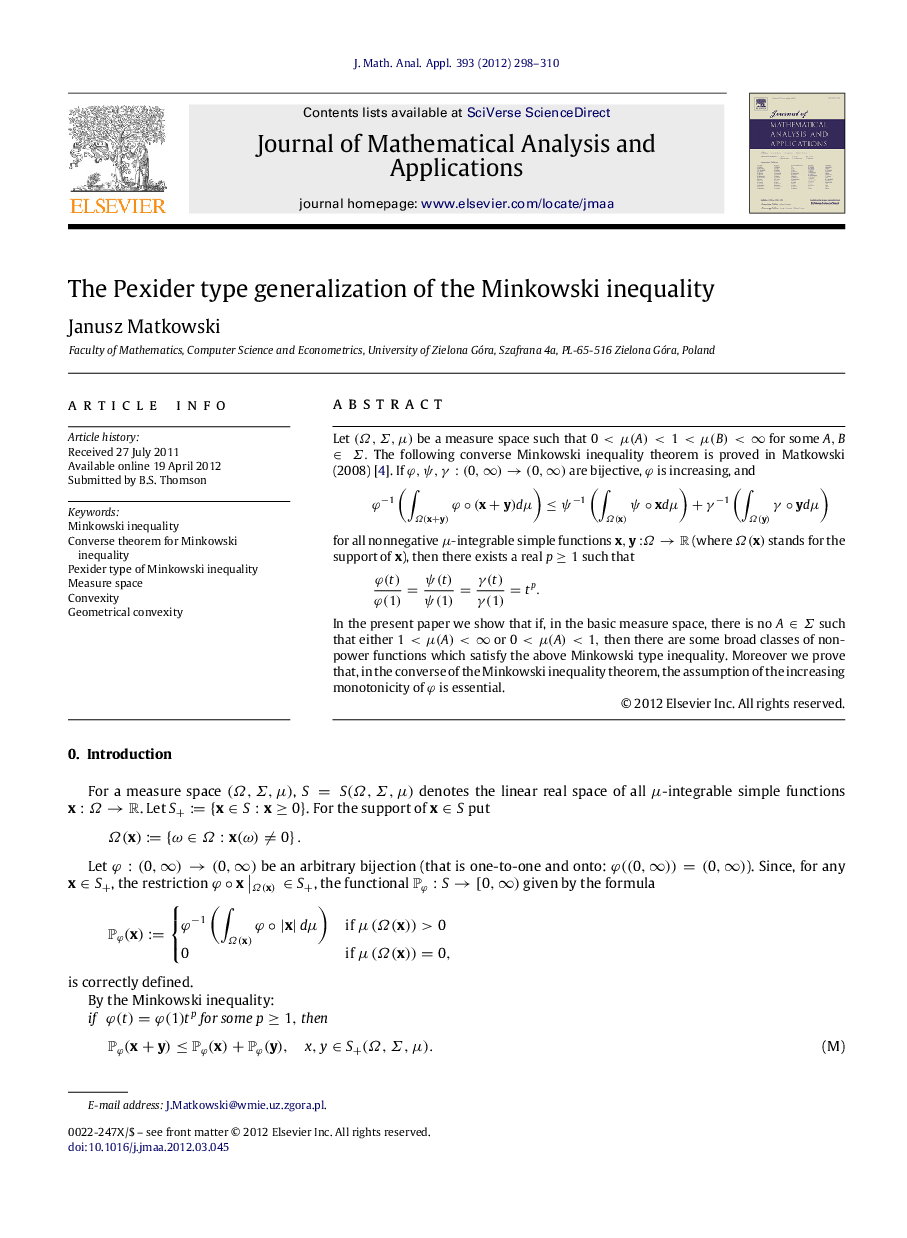| کد مقاله | کد نشریه | سال انتشار | مقاله انگلیسی | نسخه تمام متن |
|---|---|---|---|---|
| 4617395 | 1339378 | 2012 | 13 صفحه PDF | دانلود رایگان |

Let (Ω,Σ,μ)(Ω,Σ,μ) be a measure space such that 0<μ(A)<1<μ(B)<∞0<μ(A)<1<μ(B)<∞ for some A,B∈ΣA,B∈Σ. The following converse Minkowski inequality theorem is proved in Matkowski (2008) [4]. If φ,ψ,γ:(0,∞)→(0,∞)φ,ψ,γ:(0,∞)→(0,∞) are bijective, φφ is increasing, and φ−1(∫Ω(x+y)φ∘(x+y)dμ)≤ψ−1(∫Ω(x)ψ∘xdμ)+γ−1(∫Ω(y)γ∘ydμ) for all nonnegative μμ-integrable simple functions x,y :Ω→R (where Ω(x) stands for the support of x), then there exists a real p≥1p≥1 such that φ(t)φ(1)=ψ(t)ψ(1)=γ(t)γ(1)=tp. In the present paper we show that if, in the basic measure space, there is no A∈ΣA∈Σ such that either 1<μ(A)<∞1<μ(A)<∞ or 0<μ(A)<10<μ(A)<1, then there are some broad classes of non-power functions which satisfy the above Minkowski type inequality. Moreover we prove that, in the converse of the Minkowski inequality theorem, the assumption of the increasing monotonicity of φφ is essential.
Journal: Journal of Mathematical Analysis and Applications - Volume 393, Issue 1, 1 September 2012, Pages 298–310